This article delves into the best cleaning robots available in 2025, focusing on the most highly-rated robot vacuums and mops that enhance home cleaning efficiency and convenience. With the rapid advancements in technology, these devices have become essential for busy households looking to maintain cleanliness without the hassle of traditional cleaning methods.
Why Choose a Robot Vacuum?
Robot vacuums have transformed the way we approach home cleaning. Their convenience and efficiency make them a popular choice for modern households. For instance:
- Hands-Free Cleaning: Simply set a schedule and let the robot do the work.
- Smart Navigation: Advanced models use sensors to navigate around furniture and avoid obstacles.
- Time-Saving: Spend less time cleaning and more time enjoying your home.
Incorporating a robot vacuum into your cleaning routine can significantly reduce the time and effort required to keep your floors clean.
Top Robot Vacuums of 2025
As we look at the leading robot vacuums of 2025, several models stand out for their features and performance. These include:
- iRobot Roomba j7+: Known for its smart mapping and pet hair detection capabilities.
- Ecovacs Deebot X1 Omni: Offers both vacuuming and mopping features with advanced AI technology.
- Roborock S7 MaxV: Features powerful suction and a unique mopping system that lifts the mop when carpets are detected.
These models have received high user ratings and reviews, making them excellent choices for anyone looking to invest in a robot vacuum.
Best Robot Mops for Effortless Cleaning
Robot mops have revolutionized floor cleaning by combining vacuuming and mopping capabilities. Some of the best models in 2025 include:
- iRobot Braava Jet m6: Ideal for hard floors, featuring precision jet spray for effective mopping.
- Roborock S7: Known for its sonic mopping technology and ability to vacuum and mop simultaneously.
- Ecovacs Deebot T10 Plus: Offers advanced navigation and cleaning modes tailored to different floor types.
These robot mops not only save time but also ensure your floors remain clean and shiny with minimal effort.
How to Choose the Right Cleaning Robot
When selecting the ideal cleaning robot, consider the following factors:
- Floor Type: Ensure the robot is suitable for your flooring, whether it’s carpet, tile, or hardwood.
- Battery Life: Look for models that can cover your entire home on a single charge.
- Smart Features: Features like app control, scheduling, and voice activation can enhance usability.
By considering these aspects, you can find a cleaning robot that perfectly fits your needs and lifestyle.
Smart Features in Cleaning Robots
Modern cleaning robots come equipped with a range of smart features that enhance their functionality. Some notable features include:
- App Control: Monitor and control your robot from your smartphone.
- Scheduling: Set cleaning schedules to ensure your home is always clean when you need it.
- Obstacle Detection: Advanced sensors help robots avoid furniture and stairs, preventing accidents.
These smart features not only improve cleaning efficiency but also add to the overall user experience.
Comparing Robot Vacuums and Traditional Vacuums
Understanding the differences between robot vacuums and traditional vacuums can guide your purchase. Here’s a quick comparison:
| Feature | Robot Vacuum | Traditional Vacuum |
|---|---|---|
| Hands-Free Operation | Yes | No |
| Cleaning Coverage | Automatic | Manual |
| Storage Space | Compact | Bulky |
This comparison highlights the advantages of robot vacuums, particularly for those with busy lifestyles.
Maintenance Tips for Robot Vacuums
Proper maintenance can extend the lifespan of your robot vacuum. Here are essential tips:
- Regular Cleaning: Empty the dustbin and clean the brushes frequently.
- Software Updates: Keep the robot’s software updated for optimal performance.
- Battery Care: Follow manufacturer guidelines for charging and storing the battery.
By following these maintenance tips, you can ensure that your robot vacuum remains in top condition for years to come.
User Experiences: Real Reviews of Cleaning Robots
Hearing from actual users can provide valuable insights into the effectiveness of cleaning robots. Many users report significant time savings and improved cleanliness in their homes. Reviews often highlight:
- Ease of Use: Most users find robot vacuums easy to operate and program.
- Cleaning Performance: Many models excel in picking up pet hair and dirt.
- Customer Support: Positive experiences with customer service can enhance user satisfaction.
These real-world testimonials can help potential buyers make informed decisions.
Cost vs. Value: Are Robot Vacuums Worth It?
The investment in a robot vacuum can be significant. Analyzing the cost versus value is essential to determine if these devices are worth the expense. Consider the following:
- Time Savings: Calculate the hours saved on cleaning tasks.
- Durability: Assess the lifespan and warranty of the product.
- Enhanced Cleaning: Evaluate the quality of cleaning compared to traditional methods.
Ultimately, the value derived from a robot vacuum often justifies the initial cost.
Future Trends in Cleaning Robot Technology
As technology evolves, so do cleaning robots. Emerging trends include:
- AI Integration: Smarter robots that learn cleaning patterns for more efficient operation.
- Eco-Friendly Options: Models designed with sustainability in mind, using less energy and eco-friendly materials.
- Enhanced Connectivity: Integration with smart home systems for seamless operation.
These innovations are shaping the future of home cleaning solutions, making them even more effective and user-friendly.
Environmental Impact of Cleaning Robots
With growing awareness of sustainability, understanding the environmental impact of cleaning robots is essential. These devices can contribute to eco-friendly cleaning practices in several ways:
- Energy Efficiency: Many models are designed to consume less energy compared to traditional vacuums.
- Reduced Chemical Use: Robot mops often require less cleaning solution, promoting a healthier home environment.
- Longevity: Investing in durable products reduces waste over time.
By choosing the right cleaning robot, you can maintain a clean home while being mindful of the environment.
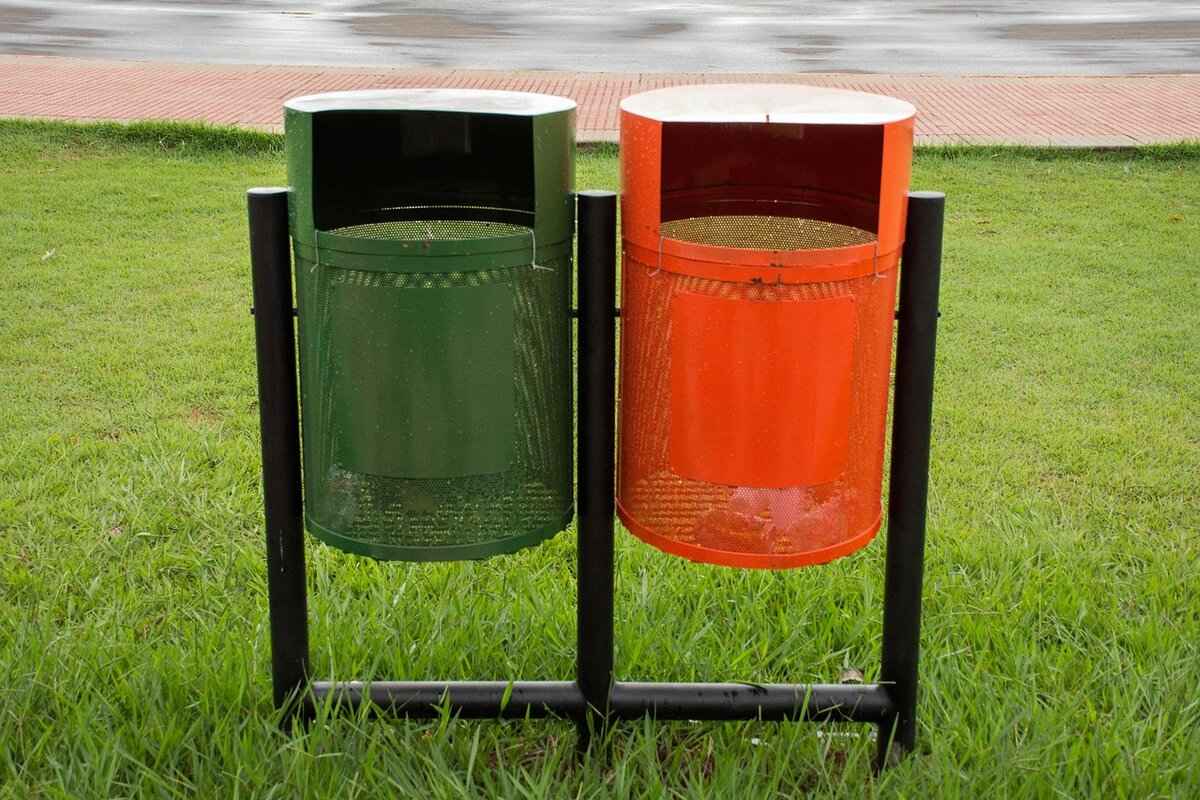
Why Choose a Robot Vacuum?
In today’s fast-paced world, maintaining a clean home can often feel like a daunting task. This is where robot vacuums come into play, transforming the way we approach household cleaning. These innovative devices not only offer convenience but also enhance the efficiency of your cleaning routine. Let’s delve deeper into the various reasons why incorporating a robot vacuum into your home can be a game-changer.
- Time-Saving Technology: One of the most significant advantages of robot vacuums is their ability to operate autonomously. With just a push of a button or a simple command through a smartphone app, these devices can clean your floors while you attend to other tasks. Imagine coming home to spotless floors without having to lift a finger!
- Smart Navigation: Modern robot vacuums are equipped with advanced navigation systems that allow them to map your home efficiently. They can detect obstacles, avoid falling down stairs, and even return to their charging stations when their battery runs low. This smart technology ensures thorough cleaning without the need for constant supervision.
- Compact Design: The sleek and compact design of robot vacuums allows them to reach areas that traditional vacuums might struggle with, such as under furniture and along edges. This capability ensures that every corner of your home is cleaned, leaving no dust or debris behind.
- Customizable Cleaning Schedules: Many robot vacuums come with scheduling features, allowing you to set specific cleaning times. This means you can have your floors cleaned while you’re at work or sleeping, ensuring that your home remains tidy without interrupting your daily routine.
- Cost-Effective Maintenance: While the initial investment in a robot vacuum may seem high, they often require less maintenance than traditional vacuums. With fewer moving parts and no bags to replace, the long-term costs can be lower, making them a smart financial choice for many households.
- Allergy-Friendly Cleaning: For those with allergies, robot vacuums can be particularly beneficial. Many models are equipped with HEPA filters that trap allergens, dust, and pet dander, improving the overall air quality in your home.
In summary, the benefits of using a robot vacuum extend beyond simple convenience. From saving time and effort to providing thorough and efficient cleaning, these devices can significantly enhance your home maintenance routine. As technology continues to evolve, the capabilities of robot vacuums are expected to improve even further, making them an essential tool for modern households.
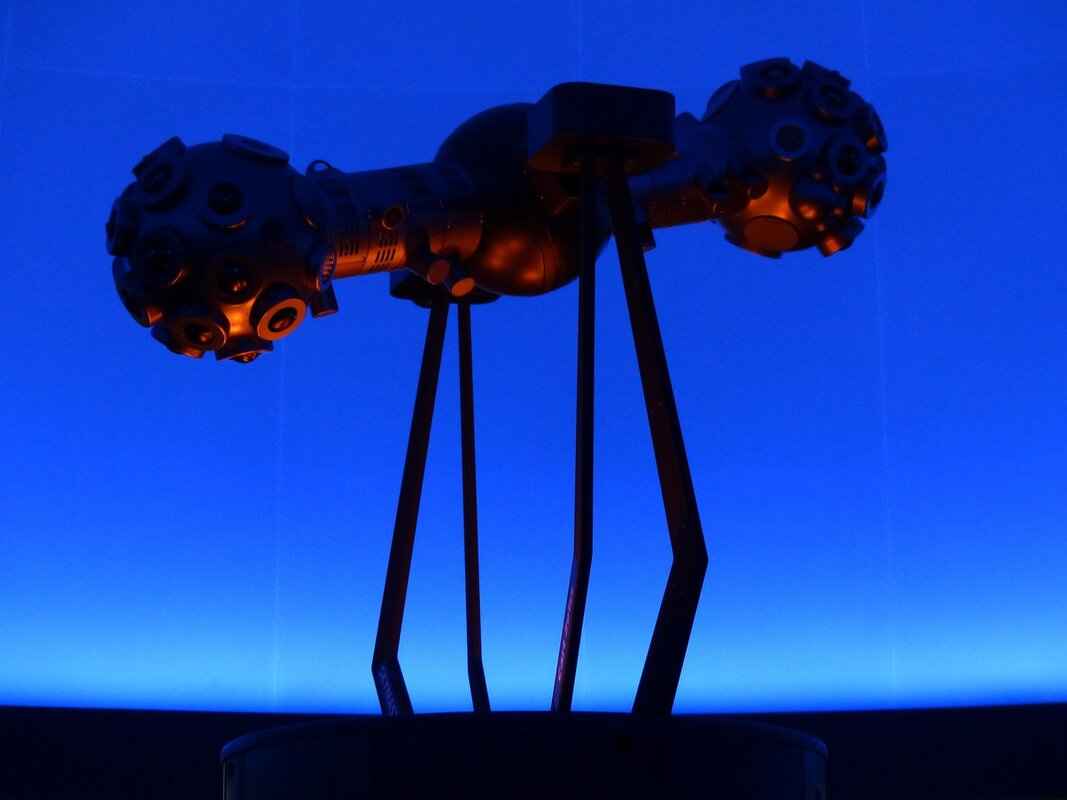
Top Robot Vacuums of 2025
As we step into 2025, the realm of home cleaning has been transformed by cutting-edge technology. The latest robot vacuums are not just gadgets; they are essential tools designed to make our lives easier. In this section, we will delve into the , examining their standout features, performance metrics, and user reviews to empower you in making an informed decision for your cleaning needs.
The iRobot Roomba j7+ continues to lead the pack in 2025 with its advanced obstacle avoidance technology. Users rave about its ability to navigate around pet waste and other obstacles, making it ideal for households with pets. The j7+ also features:
- Smart Mapping: Learns the layout of your home for efficient cleaning paths.
- Power-Lifting Suction: Provides 10x the air power for deep cleaning.
- Self-Emptying Base: Automatically empties its bin, requiring less frequent maintenance.
User reviews highlight its impressive cleaning performance on both carpets and hard floors, along with a user-friendly app for scheduling and monitoring cleaning sessions.
The Roborock S7 MaxV is another strong contender, known for its mopping capabilities combined with vacuuming. This model is praised for:
- Intelligent Obstacle Avoidance: Uses dual cameras to detect and avoid obstacles.
- VibraRise Technology: Automatically lifts the mop when carpet is detected.
- Long Battery Life: Up to 180 minutes of cleaning on a single charge.
Users appreciate the thoroughness of its cleaning and the convenience of its app, which allows for customized cleaning schedules and zone cleaning.
The Ecovacs Deebot X1 Omni stands out with its all-in-one cleaning solution, offering both vacuuming and mopping in one device. Key features include:
- Automated Mop Washing: Cleans itself after each use.
- Voice Control: Compatible with Alexa and Google Assistant for hands-free operation.
- Advanced Navigation: Utilizes LiDAR technology for precise mapping.
Reviews indicate that the Deebot X1 Omni is particularly effective on hard surfaces, and its self-cleaning feature is a major selling point for busy households.
The Shark IQ Robot Vacuum is noted for its affordability without compromising on performance. It includes features such as:
- Self-Empty Base: Holds up to 30 days of dirt and debris.
- Row-by-Row Cleaning: Methodically cleans room by room for thorough coverage.
- Smart Home Compatibility: Works with voice commands via Alexa or Google Assistant.
Users find it to be a reliable option for regular cleaning, especially in homes with mixed floor types.
In conclusion, the robot vacuum landscape of 2025 offers a variety of options to suit different cleaning needs and preferences. From advanced navigation systems to self-cleaning capabilities, these devices are designed to enhance your cleaning experience. Whether you prioritize pet hair removal, hard floor maintenance, or budget-friendly options, there’s a robot vacuum that fits your requirements.
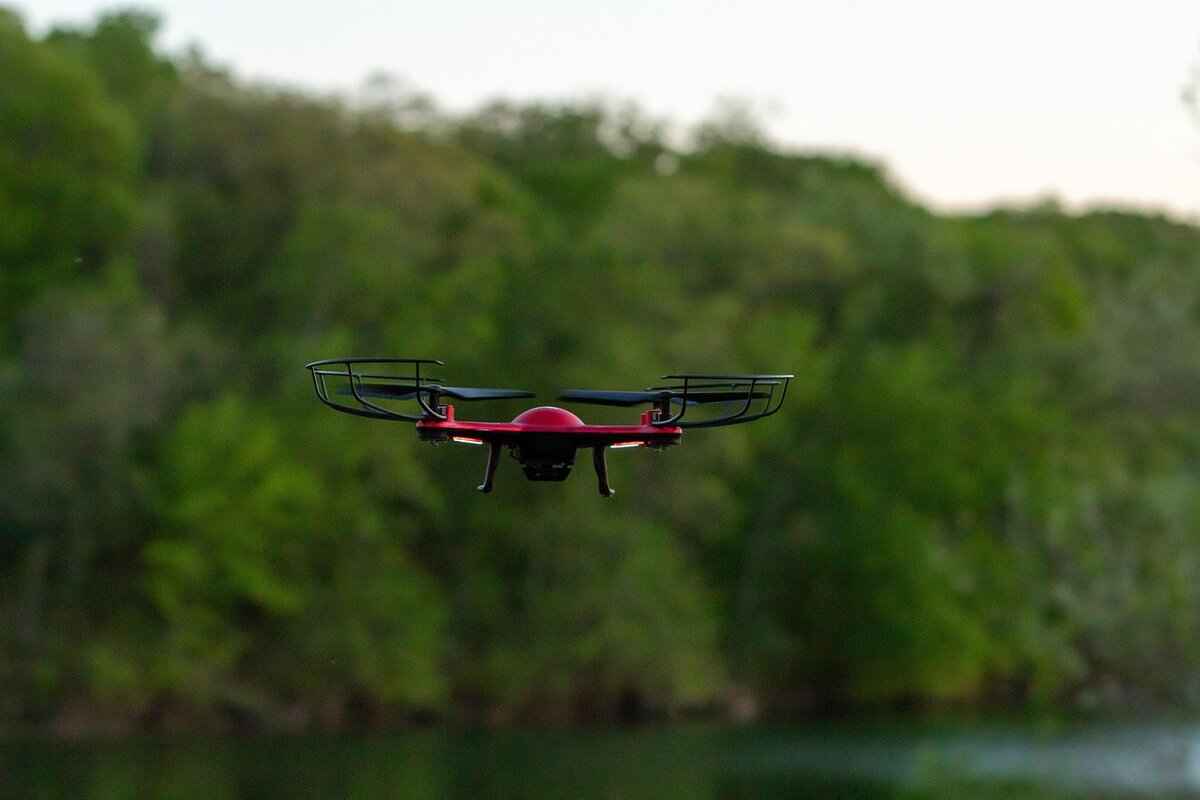
Best Robot Mops for Effortless Cleaning
Robot mops have truly transformed the way we approach floor cleaning in our homes. By integrating both vacuuming and mopping functions into a single device, these innovative machines offer a level of convenience that traditional cleaning methods simply cannot match. In this section, we will explore the best robot mops available in 2025, highlighting their features, benefits, and performance.
Investing in a robot mop means investing in efficiency and time-saving solutions for your cleaning routine. These devices can autonomously navigate your home, tackling dirt and grime while you focus on other tasks. With features like smart mapping and scheduled cleaning, robot mops ensure that your floors remain spotless with minimal effort on your part.
- Dual Functionality: The best robot mops combine vacuuming and mopping capabilities, allowing for a thorough clean.
- Smart Navigation: Advanced models utilize sensors and cameras to avoid obstacles and efficiently map their cleaning path.
- Customizable Cleaning Modes: Many robot mops offer various cleaning modes, such as spot cleaning and edge cleaning, to cater to different needs.
- App Integration: Control your robot mop remotely through a smartphone app, enabling you to schedule cleanings or start them on demand.
As we delve into the best robot mops available in 2025, several models stand out for their exceptional performance and user satisfaction:
| Model | Key Features | User Rating |
|---|---|---|
| iRobot Braava Jet m6 | Smart mapping, powerful mopping, and app control | 4.7/5 |
| Roborock S7 | Vacuums and mops simultaneously, sonic mopping technology | 4.8/5 |
| Ecovacs Deebot Ozmo T8 | Advanced obstacle avoidance, dual cleaning system | 4.6/5 |
When selecting a robot mop, consider the following factors:
- Floor Type: Ensure the robot mop is suitable for your flooring, whether it’s hardwood, tile, or carpet.
- Battery Life: Longer battery life means more cleaning time. Look for models that can cover your entire space on a single charge.
- Maintenance Requirements: Choose a model that is easy to clean and maintain to ensure longevity.
Customer reviews highlight the effectiveness of robot mops in maintaining clean and shiny floors. Users appreciate their convenience, especially for busy households. Many report significant time savings and a noticeable improvement in their floor cleanliness compared to traditional mopping methods.
In conclusion, robot mops are a valuable addition to any smart home. By combining advanced technology with practical cleaning solutions, they make maintaining clean floors easier than ever. Whether you are busy with work, family, or other commitments, investing in a quality robot mop can streamline your cleaning routine and enhance your living environment.

How to Choose the Right Cleaning Robot
Selecting the ideal cleaning robot requires careful consideration of various factors. With the growing popularity of these devices, understanding what features to prioritize can significantly enhance your cleaning experience. Below are key elements to consider when choosing the right cleaning robot for your home.
- Floor Type Compatibility: Consider the types of flooring in your home. Some robots excel on hard surfaces, while others are designed for carpets. Look for models that can adapt to both to maximize versatility.
- Battery Life: A longer battery life is crucial for larger homes. Ensure the cleaning robot can cover your space on a single charge. Many models come with features that allow them to return to their charging station when the battery is low.
- Suction Power: The strength of the suction is vital for effective cleaning. Look for robots with adjustable suction settings to tackle different messes, from pet hair to dust.
- Navigation Technology: Advanced navigation systems help robots avoid obstacles and efficiently clean your home. Models with mapping technology can remember the layout of your space, allowing for systematic cleaning.
- Smart Features: Many modern cleaning robots come equipped with smart features such as app control, scheduling, and voice command compatibility. These features can enhance convenience and efficiency, allowing you to manage cleaning tasks remotely.
- Filtration System: If allergies are a concern, consider robots with HEPA filters that trap allergens and dust particles, improving indoor air quality.
- Maintenance Requirements: Assess how easy it is to maintain the robot. Models with self-cleaning brushes and easy-to-empty dust bins can save you time and effort.
- Noise Level: Some robots operate quietly, while others can be quite loud. If noise is a concern, check user reviews for insights on sound levels during operation.
- Price vs. Features: Determine your budget and compare various models within that range. Sometimes, paying a bit more can provide you with additional features that enhance usability and performance.
By keeping these factors in mind, you can make an informed decision that aligns with your cleaning needs and lifestyle. Each household is unique, and the right cleaning robot will depend on your specific requirements. Take the time to research and compare different models, read user reviews, and consider what features are non-negotiable for your home. Investing in the right cleaning robot can lead to a cleaner, more organized living space with minimal effort on your part.
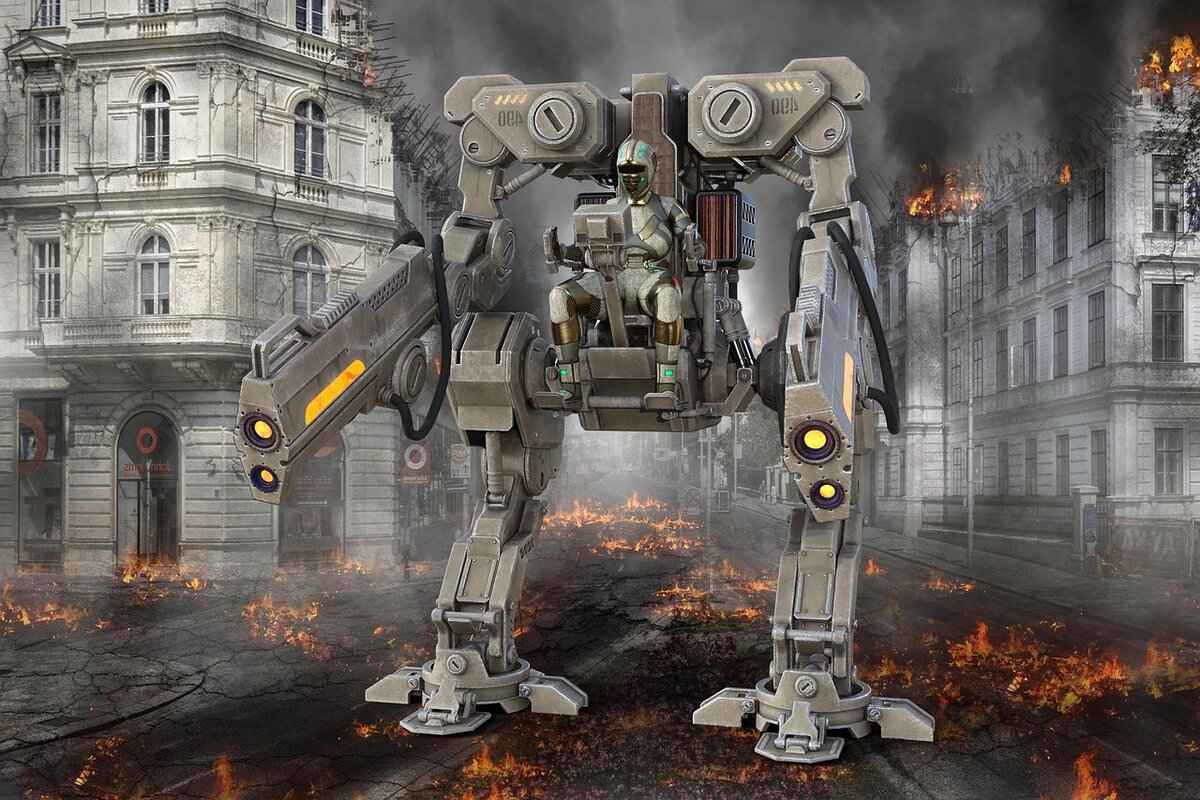
Smart Features in Cleaning Robots
Cleaning robots have transformed the way we maintain our homes, thanks to their smart features that enhance efficiency and convenience. In this section, we will explore the innovative technologies that make modern cleaning robots indispensable for busy households.
Modern cleaning robots are equipped with a variety of advanced technologies that significantly improve their functionality. These features not only simplify cleaning tasks but also provide users with greater control and flexibility. Here are some of the most notable smart features:
- App Control: Many cleaning robots can be controlled via smartphone apps, allowing users to start, stop, or schedule cleaning sessions from anywhere. This feature is especially useful for those who want to manage their cleaning routines while on the go.
- Scheduling: Users can set specific cleaning times for their robots, ensuring that their homes are clean even when they are not present. This feature is perfect for busy individuals or families with hectic schedules.
- Obstacle Detection: Advanced sensors enable cleaning robots to navigate around furniture and other obstacles seamlessly. This technology minimizes the risk of collisions and ensures thorough cleaning without user intervention.
- Mapping Technology: Some high-end models use mapping technology to create a layout of your home, allowing for more efficient cleaning paths. This feature ensures that every corner is covered without redundant passes.
- Voice Control: Integration with smart home systems like Amazon Alexa or Google Assistant allows users to control their cleaning robots with simple voice commands, adding an extra layer of convenience.
The integration of these smart features revolutionizes the cleaning process. For instance, app control and scheduling mean that users can maintain a clean home without dedicating time to the task. The robot can operate while the user is at work or running errands, ensuring that cleaning is done consistently.
Furthermore, obstacle detection and mapping technology enhance the robot’s ability to clean effectively. By avoiding obstacles and planning efficient routes, these robots can cover more ground in less time, providing a thorough clean without the need for manual intervention.
The benefits of incorporating smart cleaning robots into your home extend beyond mere convenience. Here are some key advantages:
- Time-Saving: With the ability to clean autonomously, users save valuable time that can be spent on other important tasks or leisure activities.
- Consistent Cleaning: Regularly scheduled cleanings ensure that dust and dirt do not accumulate, leading to a healthier living environment.
- Energy Efficiency: Many modern cleaning robots are designed to use less energy compared to traditional vacuum cleaners, making them a more eco-friendly option.
- Customizable Cleaning: Users can tailor cleaning schedules and settings based on their specific needs, ensuring that the robot adapts to their lifestyle.
In summary, the smart features found in modern cleaning robots greatly enhance their functionality and efficiency. By leveraging technologies such as app control, scheduling, and obstacle detection, these devices provide a seamless cleaning experience that caters to the needs of today’s busy households.
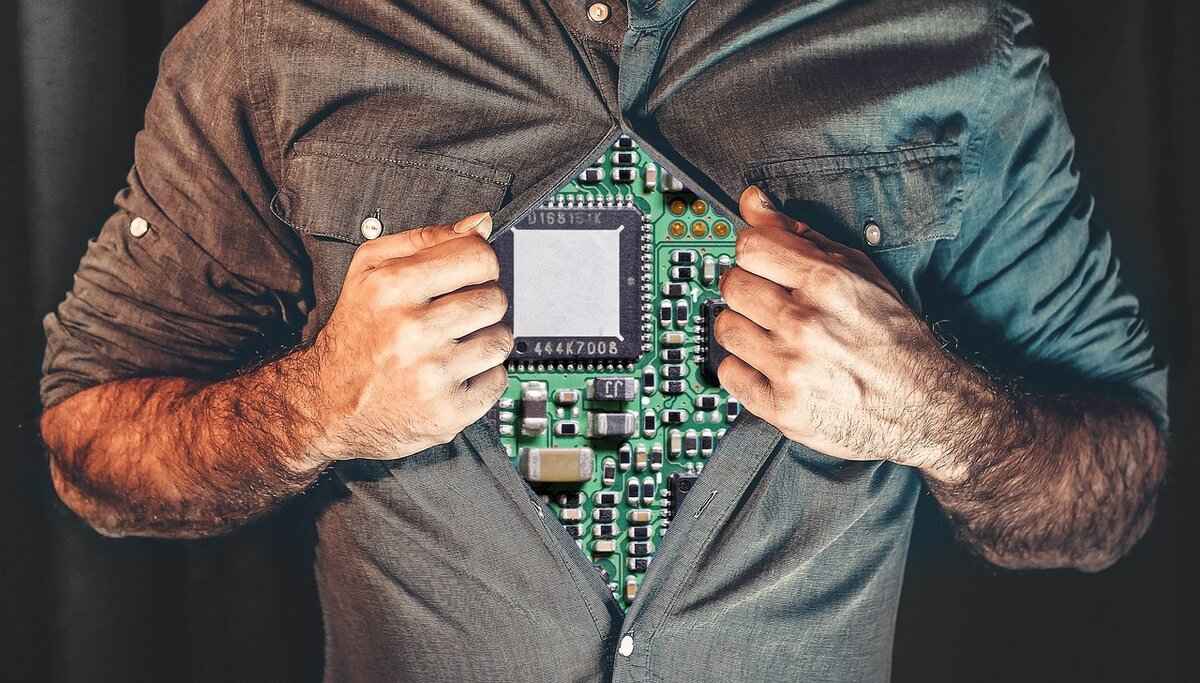
Comparing Robot Vacuums and Traditional Vacuums
When it comes to home cleaning, choosing the right vacuum can significantly impact your efficiency and convenience. is essential for making an informed decision. Each type has its own set of advantages and disadvantages, which can influence your purchase depending on your specific cleaning needs.
Robot vacuums have surged in popularity due to their innovative design and automation capabilities. Here are some notable pros:
- Convenience: Robot vacuums can clean your floors while you focus on other tasks, allowing for multitasking.
- Scheduling: Many models come with scheduling features, enabling you to set cleaning times even when you’re not home.
- Compact Design: Their small size allows them to reach under furniture and into tight spaces that traditional vacuums may struggle with.
However, there are also some cons to consider:
- Limited Suction Power: Robot vacuums may not offer the same suction power as traditional models, making them less effective on deep carpets.
- Battery Life: Depending on the model, battery life can be a limitation, requiring frequent recharging.
- Navigation Issues: Some robots may struggle with complex room layouts or obstacles, leading to incomplete cleaning.
Traditional vacuums, such as upright or canister models, have been the go-to choice for many households for years. Their pros include:
- Powerful Cleaning: Traditional vacuums generally provide superior suction power, making them ideal for deep cleaning carpets and removing pet hair.
- Versatility: Many models come with various attachments for different cleaning tasks, such as upholstery or hard-to-reach areas.
- Immediate Results: You can see the results of your cleaning efforts right away, as traditional vacuums require active participation.
On the flip side, there are some cons:
- Time-Consuming: Using a traditional vacuum can take more time, as it requires manual operation and effort.
- Bulkiness: Traditional vacuums can be heavy and cumbersome, making them less convenient for quick clean-ups.
- Noise Level: They tend to be noisier than their robotic counterparts, which can be disruptive in a quiet household.
Ultimately, the choice between a robot vacuum and a traditional vacuum depends on your lifestyle and cleaning preferences. If you value convenience and automation, a robot vacuum might be the right fit. However, if you prioritize deep cleaning and power, a traditional vacuum may serve you better. Consider your specific needs, such as the type of flooring in your home, the presence of pets, and your available time for cleaning. By weighing the pros and cons of each option, you can make a more informed decision that aligns with your cleaning goals.

Maintenance Tips for Robot Vacuums
Proper maintenance is crucial for ensuring that your robot vacuum operates at its best. With the right care, you can significantly extend the lifespan of your device, allowing it to perform optimally for years to come. Below are some essential maintenance tips that every robot vacuum owner should follow.
One of the most important maintenance tasks is to regularly clean the filters and brushes of your robot vacuum. Clogged filters can reduce suction power, while tangled hair and debris in the brushes can hinder cleaning efficiency. It is recommended to check and clean these components at least once a month. For optimal performance, replace the filters as per the manufacturer’s guidelines.
The charging dock is the lifeline of your robot vacuum. Dust and debris can accumulate on the charging contacts, preventing the vacuum from charging properly. Regularly wipe down the charging dock with a damp cloth to ensure a good connection. Additionally, make sure the area around the dock is clear of obstacles to facilitate easy docking.
Most modern robot vacuums come equipped with smart technology that allows for software updates. Keeping your robot vacuum’s software up to date is essential for optimal performance and security. Check the manufacturer’s website or app for available updates and install them as needed to benefit from improved features and bug fixes.
The battery is a critical component of your robot vacuum. To ensure longevity, avoid letting the battery completely discharge frequently. Instead, charge it when it reaches around 20% capacity. If your vacuum supports it, consider using a smart charging schedule to maintain battery health. Additionally, if you notice a decline in battery life, it might be time to look into a replacement.
If you plan to store your robot vacuum for an extended period, make sure to follow proper storage guidelines. Clean the vacuum thoroughly, remove the battery if applicable, and store it in a cool, dry place. Avoid exposing it to extreme temperatures or humidity, as these conditions can damage the internal components.
Regular inspections can help you catch any potential issues before they become significant problems. Look for signs of wear and tear on the wheels, brushes, and housing. If you notice any cracks or damage, consult the manufacturer for replacement parts. Keeping your robot vacuum in good physical condition is essential for maintaining its performance.
Many robot vacuums come with features that allow you to set virtual boundaries. Use these features to keep your vacuum away from areas where it may get stuck or damaged, such as near stairs or cluttered spaces. This not only protects your vacuum but also ensures it can clean effectively without interruptions.
By following these maintenance tips, you can ensure that your robot vacuum remains in top condition, providing you with efficient and effective cleaning for years to come. Consistent care and attention will not only extend its lifespan but also enhance its performance, making your investment worthwhile.

User Experiences: Real Reviews of Cleaning Robots
When considering the purchase of a cleaning robot, one of the most effective ways to gauge its performance and reliability is through the voices of actual users. Real reviews and testimonials provide invaluable insights that can help prospective buyers make informed decisions. This section compiles a variety of user experiences, showcasing the strengths and weaknesses of different cleaning robots available on the market in 2025.
Many users appreciate the convenience that cleaning robots bring to their daily routines. For instance, a user named Sarah from California shared her experience with the iRobot Roomba i7+. She stated, “I love how I can schedule my Roomba to clean while I’m at work. It’s like having a personal maid!” This sentiment is echoed by numerous users who find that the ability to automate cleaning tasks saves them significant time and effort.
Another common theme in user reviews is the effectiveness of these devices in maintaining clean floors. John, a user from New York, noted, “The Roborock S7 does an excellent job of picking up pet hair and dirt. I have two dogs, and it has made a noticeable difference in my home.” This highlights how certain models excel in specific cleaning scenarios, catering to pet owners or households with high foot traffic.
However, not all feedback is positive. Some users report challenges with connectivity and app functionality. For example, a reviewer named Lisa mentioned, “I had issues connecting my Ecovacs Deebot to the app, which was frustrating. But once it was set up, it worked well.” This indicates that while many robots offer smart features, initial setup can sometimes be a hurdle for users.
In terms of maintenance, user experiences vary widely. A user from Texas, Mike, expressed, “Cleaning the dustbin is a bit of a hassle, but it’s a small price to pay for a cleaner home.” Regular maintenance, such as emptying the dustbin and cleaning brushes, is a recurring topic among reviews. Users who are diligent about maintenance often report better performance and longevity of their cleaning robots.
Additionally, the noise level of cleaning robots is a significant factor for many users. A user from Florida mentioned, “The Neato D7 is surprisingly quiet compared to my old vacuum. I can run it while my kids are napping without waking them up.” This aspect is crucial for families or individuals who value a peaceful home environment.
Lastly, users often discuss the value for money aspect of these devices. A user named Rachel stated, “I was hesitant to spend so much on a cleaning robot, but it has been worth every penny. I can’t imagine going back to a traditional vacuum.” This perspective reflects the growing acceptance of cleaning robots as a worthwhile investment, especially for those seeking convenience and efficiency.
In conclusion, user experiences with cleaning robots reveal a wealth of information that can aid potential buyers. From convenience and effectiveness to maintenance challenges and noise levels, these reviews provide a comprehensive view of what to expect from various models. As technology continues to advance, it is clear that cleaning robots will play an increasingly vital role in modern households.

Cost vs. Value: Are Robot Vacuums Worth It?
Investing in a robot vacuum can be a considerable financial decision for many households. With various models available on the market, it is essential to evaluate whether the cost aligns with the value these devices provide. In this section, we will explore the cost versus value of robot vacuums, helping you determine if they are a worthy addition to your cleaning routine.
The initial investment in a robot vacuum can range from a few hundred to over a thousand dollars, depending on the brand, features, and technology. Basic models may offer essential cleaning functions, while high-end versions come equipped with advanced features such as smart home integration, mapping technology, and self-emptying capabilities.
- Entry-Level Models: Typically priced between $200 and $400, these vacuums offer basic cleaning functions suitable for small spaces.
- Mid-Range Models: Ranging from $400 to $700, these often include enhanced features like better suction power and smart navigation.
- High-End Models: Priced above $700, these models usually feature advanced technology, including app control, voice activation, and superior cleaning performance.
When assessing whether a robot vacuum is worth the expense, consider the value it brings to your daily life. One significant advantage is the time saved on cleaning. Many users report that these devices allow them to focus on other tasks while maintaining a clean home. Additionally, robot vacuums are designed to reach areas that traditional vacuums might miss, such as under furniture and in tight corners.
- Convenience: Robot vacuums operate autonomously, allowing you to schedule cleaning sessions even when you’re not home.
- Consistency: Regular cleaning can help reduce allergens and dust accumulation, contributing to a healthier living environment.
- Smart Features: Many models come with apps that allow you to monitor cleaning progress, set schedules, and receive maintenance alerts.
While the upfront cost is a critical factor, long-term expenses should also be taken into account. Robot vacuums typically require maintenance, including replacing filters, brushes, and batteries over time. However, these costs are generally lower than the expense of hiring a cleaning service.
- Maintenance Costs: Regular upkeep can range from $50 to $150 annually, depending on the model and usage frequency.
- Energy Efficiency: Robot vacuums consume less energy compared to traditional vacuums, leading to potential savings on your electricity bill.
Ultimately, determining if a robot vacuum is worth the investment depends on your specific cleaning needs and lifestyle. If you lead a busy life and value convenience, the time-saving benefits and consistent cleaning performance may justify the cost. However, if you prefer a hands-on approach to cleaning or have a limited budget, traditional vacuums might be a more suitable option.
In conclusion, carefully weighing the costs against the potential benefits can help you make an informed decision about whether a robot vacuum is a worthwhile investment for your home.

Future Trends in Cleaning Robot Technology
As we move further into the 21st century, the landscape of home cleaning is undergoing a profound transformation, driven by rapid advancements in technology. Cleaning robots, once seen as a luxury, are now becoming an essential part of modern households. In this section, we will delve into the emerging trends and innovations that are shaping the future of cleaning robot technology, making home cleaning more efficient and user-friendly.
- Artificial Intelligence and Machine Learning: The integration of AI and machine learning is revolutionizing cleaning robots. These technologies allow robots to learn from their environments, improving their navigation and cleaning efficiency over time. For instance, advanced models can recognize different types of flooring and adjust their cleaning methods accordingly.
- Enhanced Connectivity and Smart Home Integration: With the rise of smart homes, cleaning robots are increasingly being designed to integrate seamlessly with other smart devices. Users can control their cleaning robots via smartphone apps, voice commands, or through smart home systems like Amazon Alexa or Google Assistant. This connectivity not only enhances convenience but also allows for more precise scheduling and monitoring of cleaning tasks.
- Improved Battery Life and Charging Solutions: As battery technology advances, cleaning robots are becoming more powerful and efficient. Newer models feature longer battery life, enabling them to clean larger areas without needing a recharge. Additionally, some robots now come with self-charging capabilities, returning to their docks automatically when low on power.
- Advanced Sensors and Navigation Systems: The latest cleaning robots are equipped with sophisticated sensors that enhance their ability to navigate complex home environments. These sensors help robots avoid obstacles, detect dirtier areas, and even map out the layout of a home for more efficient cleaning patterns. This technology minimizes the chances of collisions and ensures comprehensive coverage of all surfaces.
- Eco-Friendly Cleaning Solutions: As consumer awareness of environmental issues grows, there is a significant shift towards eco-friendly cleaning robots. Many manufacturers are developing models that use less water and energy, and some are incorporating biodegradable cleaning solutions. This trend not only caters to environmentally conscious consumers but also aligns with global sustainability goals.
- Multi-Functionality: The future of cleaning robots is not limited to just vacuuming or mopping. Many new models are being designed to perform multiple tasks, such as sweeping, vacuuming, and mopping, all in one device. This versatility appeals to consumers looking for comprehensive cleaning solutions without the need for multiple machines.
With these trends, the cleaning robot industry is poised for significant growth and innovation. As technology continues to evolve, we can expect even more advanced features and capabilities in cleaning robots, making them indispensable tools in our quest for cleaner homes. The integration of AI, enhanced connectivity, and eco-friendly practices not only reflects changing consumer preferences but also paves the way for a more efficient and sustainable future in home cleaning solutions.

Environmental Impact of Cleaning Robots
As the world becomes increasingly aware of the importance of sustainability, it is crucial to evaluate the environmental impact of modern technologies, including cleaning robots. These devices, designed to simplify household chores, also have the potential to contribute positively to eco-friendly cleaning practices. This section will delve into how cleaning robots can minimize environmental footprints while maintaining cleanliness in our homes.
Cleaning robots are engineered to be energy-efficient. Many models consume significantly less power compared to traditional vacuum cleaners, which often require higher wattage to operate effectively. This reduction in energy consumption contributes to lower carbon emissions, making them a more sustainable choice for households aiming to reduce their ecological footprint.
When it comes to mopping, robot mops utilize advanced technology to optimize water usage. Unlike conventional mopping methods that may waste large amounts of water, many robot mops are equipped with sensors that determine the right amount of water needed for cleaning. This efficiency not only conserves water but also ensures that floors are cleaned without excessive moisture, reducing the risk of damage to flooring materials.
Another significant advantage of cleaning robots is their ability to minimize the use of harsh cleaning chemicals. Many models are designed to operate effectively with just water or eco-friendly cleaning solutions. This shift towards less chemical reliance is beneficial for both the environment and the health of household members, particularly those with allergies or sensitivities.
Investing in a high-quality cleaning robot can lead to longer product lifespans. These devices are often built with durable materials and are designed for easy maintenance, which can reduce the frequency of replacements. By extending the lifespan of cleaning robots, we can contribute to less electronic waste in landfills, addressing one of the pressing environmental issues of our time.
Modern cleaning robots come equipped with smart technology that enhances their efficiency. For instance, many models feature mapping capabilities that allow them to navigate homes intelligently, ensuring thorough cleaning without unnecessary repetition. This precision not only saves time but also minimizes energy consumption, aligning with sustainable practices.
With growing consumer awareness regarding sustainability, many manufacturers are now prioritizing eco-friendly designs in their cleaning robots. This includes using recyclable materials in construction and packaging, as well as implementing energy-efficient technologies. As consumers, choosing brands that prioritize sustainability can drive further innovation in the industry.
In conclusion, the environmental impact of cleaning robots is multifaceted. From energy efficiency to reduced chemical usage and waste generation, these devices can play a vital role in promoting sustainable cleaning practices. As technology continues to evolve, the potential for cleaning robots to contribute positively to our environment will only grow.
Frequently Asked Questions
- What are the main benefits of using a robot vacuum?
Robot vacuums offer incredible convenience by automating your cleaning routine. They save you time and effort, allowing you to focus on more important tasks while they handle the dirt and debris. Plus, many models come with smart features like app control and scheduling, making them even more user-friendly!
- How do I choose the right cleaning robot for my home?
Choosing the right cleaning robot depends on factors like your floor type, the size of your home, and specific cleaning needs. Look for features such as suction power, battery life, and navigation technology. Reading user reviews can also provide insights into performance and reliability.
- Are robot mops effective for cleaning floors?
Absolutely! Robot mops combine vacuuming and mopping, making them highly effective for maintaining clean and shiny floors. They can handle spills and stains with ease, offering a thorough clean that traditional mops might miss.
- How often should I maintain my robot vacuum?
Regular maintenance is key to prolonging the life of your robot vacuum. Aim to empty the dustbin after each use, clean the brushes weekly, and check for any blockages. Following these simple steps will ensure your robot remains in top condition!
- Do robot vacuums really save money in the long run?
While the initial investment in a robot vacuum can be higher than traditional models, they can save you money in the long run by reducing wear and tear on your floors and cutting down on the need for professional cleaning services. Plus, think of all the time you’ll save!































































